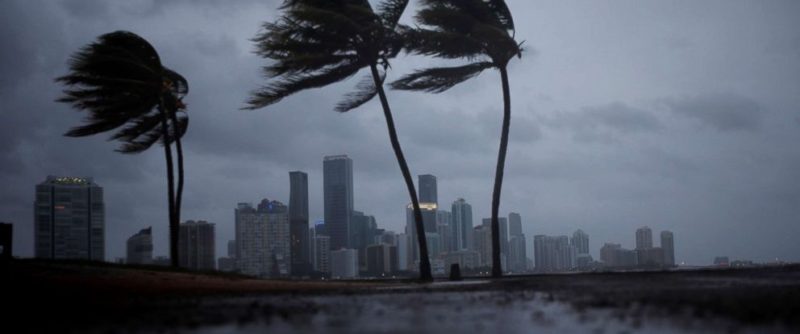After the insurance industry paid out record damages for 2017’s hurricane season, climate experts are expecting this year’s tropical storm season in the North Atlantic to be less eventful.

“Forecasts by several research institutes say this year’s season will be average,’’ climate experts for German reinsurers, Munich Re, said on Wednesday, May 30, 2018.
The long-term average for the hurricane season, lasting from the summer until the early autumn off the coasts of the U.S. and Caribbean islands, is 6.3 tropical storms.
In 2017, there were 10 hurricanes, the most destructive being Harvey, Irma and Maria, which laid waste to the Caribbean and parts of the U.S. east coast.
Damages resulting from the 2017 hurricane season were a record $220 billion .
The hurricane season starts each year at the beginning of June.
“The coastal states must prepare themselves for a normal tropical storm season, in which one strong hurricane could hit them,’’ Munich Re climate experts, Eberhard Faust and Mark Bove, wrote in a report.
They expect between five and nine hurricanes, the same as the U.S. meteorological authorities.
The experts were proved wrong in 2017 when they said it would be a below-average season for hurricanes.
But instead, ocean temperatures in the North Atlantic were unusually warm, leading to more hurricanes.
Munich Re is the world’s largest insurer and has its own dedicated climate department.
Torsten Jeworrek of the company’s board has said Munich Re does not expect more storms, just more powerful and damaging ones, which could lead to higher payouts.
